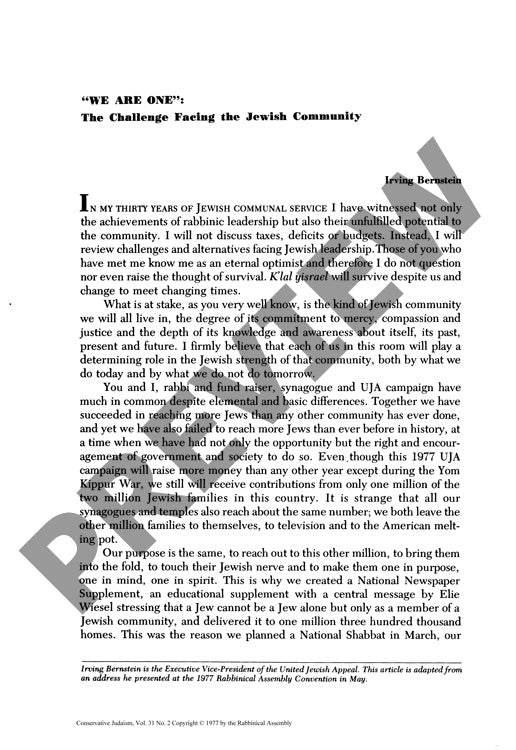We Are One the Challenge Facing the Jewi
Couldn't load pickup availability
Despite record fundraising achievements by major Jewish organizations in 1970s America, only half of American Jewish families maintain meaningful connections to communal institutions - a critical gap threatening cultural continuity and community cohesion. Drawing on three decades of communal service experience and the 1977 United Jewish Appeal campaign, this analysis reveals how Jewish leadership navigates between traditional institutional frameworks and emerging cultural pluralism. Case studies from Argentina, Italy, and Israel demonstrate patterns of successful community engagement that could address this institutional disconnect. As secular assimilationist pressures give way to affirmative ethnicity, new opportunities emerge for Jewish identity formation. Evaluation of UJA initiatives including the National Newspaper Supplement, National Shabbat, and "This Year in Jerusalem" programs shows promising approaches to bridge institutional and unaffiliated populations. The findings emphasize that effective Jewish leadership requires unified rabbinical and lay cooperation, with leaders providing confidence, knowledge, and faith while addressing critical issues including aliyah, Soviet Jewry, Holocaust memory, and Israel support. Success in building Jewish community ultimately transcends institutional boundaries, emerging through active participation in fundraising processes and embodying the principle that "We Are One" - not merely as organizational strategy but as lived Jewish experience.

More Information
-
Physical Description
-
Publication Information
Published 1977
ISBN
-
Publication Credits
Irving Bernstein

